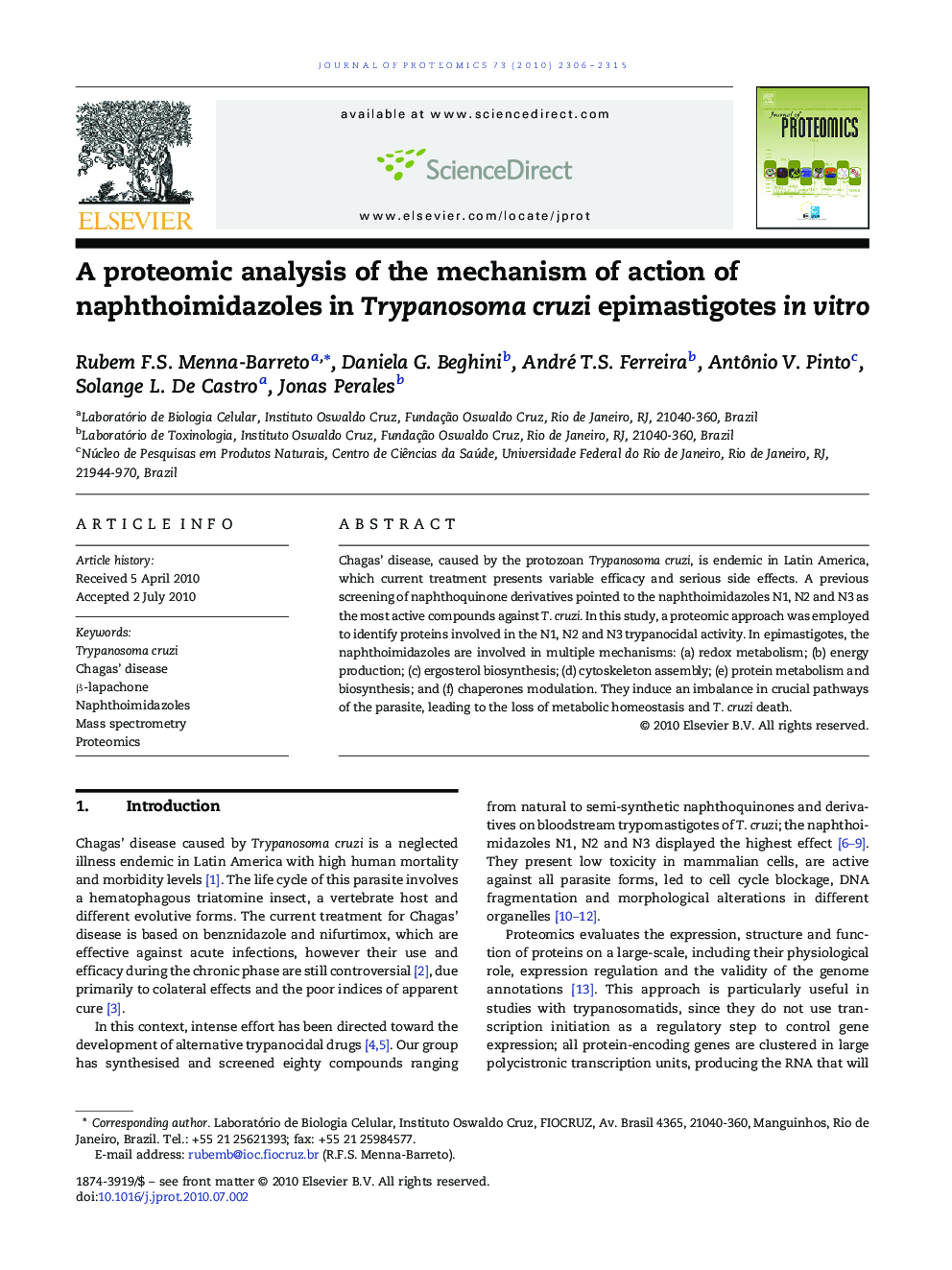| Article ID | Journal | Published Year | Pages | File Type |
|---|---|---|---|---|
| 1225532 | Journal of Proteomics | 2010 | 10 Pages |
Chagas' disease, caused by the protozoan Trypanosoma cruzi, is endemic in Latin America, which current treatment presents variable efficacy and serious side effects. A previous screening of naphthoquinone derivatives pointed to the naphthoimidazoles N1, N2 and N3 as the most active compounds against T. cruzi. In this study, a proteomic approach was employed to identify proteins involved in the N1, N2 and N3 trypanocidal activity. In epimastigotes, the naphthoimidazoles are involved in multiple mechanisms: (a) redox metabolism; (b) energy production; (c) ergosterol biosynthesis; (d) cytoskeleton assembly; (e) protein metabolism and biosynthesis; and (f) chaperones modulation. They induce an imbalance in crucial pathways of the parasite, leading to the loss of metabolic homeostasis and T. cruzi death.
Graphical abstractFigure optionsDownload full-size imageDownload high-quality image (106 K)Download as PowerPoint slide
